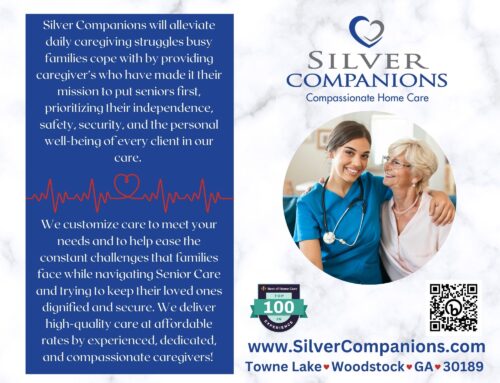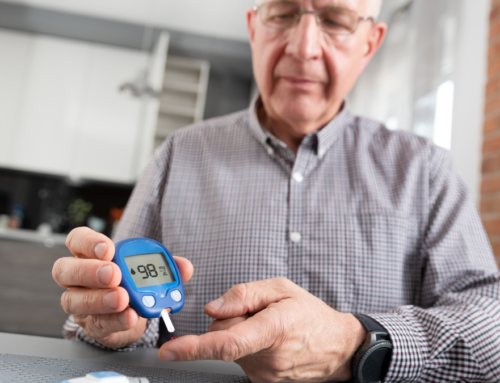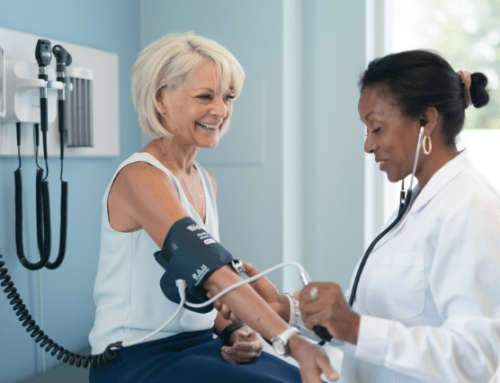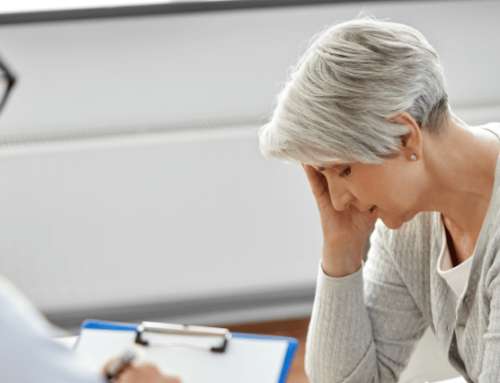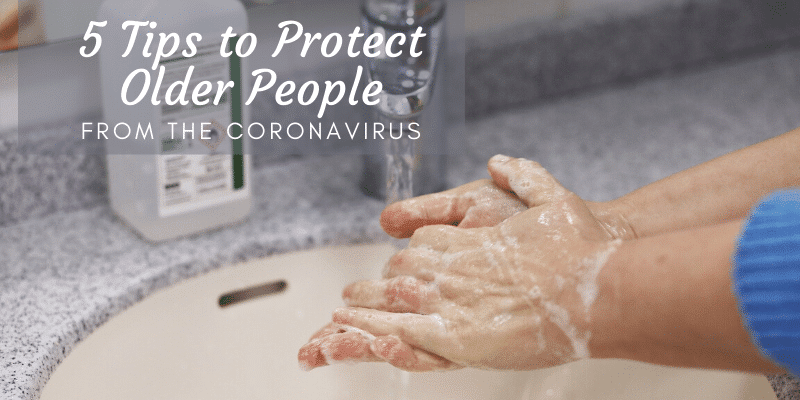
5 Tips to to Protect Older People From the Coronavirus
A positive approach to protecting yourself and your loved ones from the Coronavirus, as well as other contagious viruses.
By now, we’re sure you’ve been inundated by information about the Coronavirus. Your email inbox, newsfeed, and all news headlines seem to all be filled with more information about the state of this pandemic. You will be happy to know that we are not here to report on the statistics, the government response, or even the number of people who have been exposed. While this information is important, and definitely needs to be taken seriously, we want to provide you with 5 actionable steps that you can take right now, today, to help keep you and your loved ones safe. COVID-19 presents a health risk to all individuals who come in contact with it, however, it is particularly dangerous to our older population, and especially those with existing health conditions.
While these tips we are about to share are directed toward protecting yourself and your family from the Coronavirus, they are not limited to that, they will help protect you from most contagious viruses. Please be vigilant with your older loved ones to be sure they are following these tips, or someone is helping them follow them. These are healthy hygiene practices we should be doing regardless of any specific health threat. We want you to be safe and healthy throughout the year, by being proactive, rather than reactive.
While there is no way to guarantee against contracting this, or any, virus, we have found these 5 tips to be highly effective when followed consistently.
- Clean your hands frequently. Use soap and water whenever possible (see the attached PDF), and use hand sanitizer and sanitizing hand wipes when you are unable to wash. Be especially vigilant when older individuals are taking medications, or other times their hands come in contact with food, medications (or other consumables), or any area of their face/nose/eyes/mouth. Also, be especially careful of any open wounds, sores or cuts, and be sure to keep them covered. Are you having trouble finding hand sanitizer at the store? Did you know you can make your own?
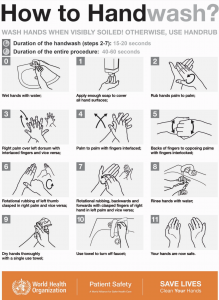
- Hand sanitizer recipe:
- ¾ cup Isopropyl or rubbing alcohol (or grain alcohol like Everclear if you can’t find isopropyl or rubbing).
- ¼ cup aloe vera gel – to help counteract the drying effects of the alcohol and keep your hands smooth.
- Essential oil or lemon juice – this gives it a more appealing smell than just the above 2 ingredients, and some essential oils have additional benefits.
- Mix the ingredients together in a bowl with a whisk until the mixture becomes the consistency of a gel.
- Pour the mixture into a clean, empty bottle and label it “Hand Sanitizer”.
- Hand sanitizer recipe:
- Avoid large crowds. This is especially important for older individuals, both those who are feeling well, as well as those who are not.
- If you are feeling fine and showing no symptoms, you still want to limit your exposure to large crowds, where there is a greater risk of coming into contact with a sick person.
- For those who are not feeling well, it’s important not to expose others to anything any illness you may have, regardless of what it may be. If there is no choice, please take precautions, like wearing a face mask and gloves. Don’t take chances with your own, or anyone else’s health.
- If you find you do have to cough or sneeze – sometimes we just can’t help but to cough or sneeze, even when we are fine (think allergies, for example) – be sure to do so into the bend of your elbow or a tissue (not into your hands). If you do cough or sneeze into your hands, be sure to wash your hands immediately, and do not touch anyone or anything until after you do.
- Clean and disinfect frequently touched surfaces. This includes tables, doorknobs, light switches, countertops, handles, desks, phones, keyboards, toilets, faucets, and sinks. This also includes any medical aids or devices, like canes, walkers, wheelchairs (seat, arms and any levers), and any similar items that are frequently used. Better to clean these surfaces too often, than not often enough.
- If you have symptoms, consult a physician. If you have any symptoms of the flu or Coronavirus, contact a medical professional, but be sure to call ahead. There are certain precautions in place at hospitals, urgent care facilities, and doctor offices, designed to protect the other patients as well as the staff. Some of the most common symptoms of COVID-19 to be aware of are:
- Fever (99 degrees or higher)
- Coughing (Coronavirus symptoms typically include a dry cough)
- Shortness of breath
- Trouble breathing
- Persistent pain or pressure in the chest
- New confusion or inability to arouse
- Bluish lips or face
- Don’t believe the hype. Make sure you are getting your information from reliable resources. The two sources that seem to be offering the most reliable information are the World Health Organization (WHO) and the Center for Disease Control (CDC). There is an abundance of information out there, from a variety of different sources. Do yourself a favor, and stick to what the experts are saying, who are monitoring this globally, and not filled with conjecture and baseless opinions.
In response to the recent COVID 19 pandemic, Silver Companions is dedicated to the safety and welfare of our clients as well as our staff. We have developed a plan of action in conjunction with the guidelines provided by the Center for Disease control and our local health department.
All Silver Companions staff are being screened daily for any symptoms of COVID 19 such as fever, coughing and or shortness of breath.
If a Staff member is experiencing any of these symptoms, they will be instructed to seek medical attention immediately. Silver Companions will assist with covering the out of pocket cost for screening and treatment of COVID 19 for all staff.
All Staff must have a release from their physician before they can return to work.
In addition, all staff have been advised to restrict travel and exposure to large crowds, events, as well as public transportation. If they do travel, they must notify the office and be screened for symptoms before returning to work.
All Silver Companion’s staff members have been provided extensive education and training regarding best practices and policies to prevent infectious diseases including COVID-19. These include staying home when sick, cough and sneeze etiquette, hand hygiene as well as routine cleaning of commonly touched surfaces.
We are, as always, committed to providing you the best possible care for you and/or your loved ones. Whether it is to help with daily chores, like grocery shopping, cooking, and cleaning, or for more advanced medical assistance, we are here to help. If you have any questions about in-home care, we are offering you a no-obligation, no-cost consultation. Please contact us to schedule your consultation. You can use our contact form, email us at info@silvercompanions.com, or call us at (678) 494-8129.

